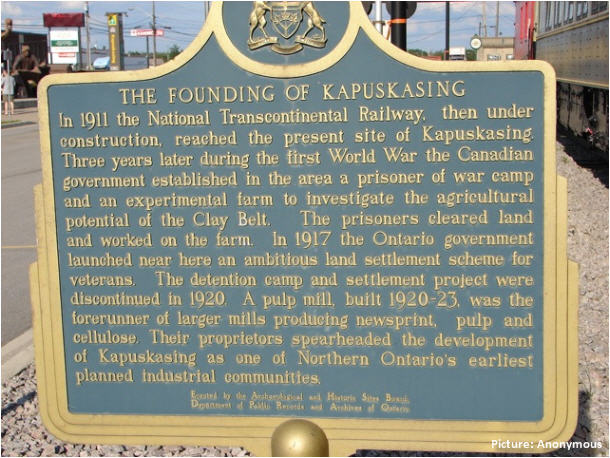Reader Comment on Lost Turks of Brantford

We have received a reader comment about the Lost Turks of Brantford article published in February 2014 issue. You can find both this mail and reply from the author of the related article.
“Subject: article re: Turkish genocide
Message: Respectfully, the archives in our museum in Kapuskasing, Ontario, where the Brantford Turks were interned show that they were mostly all released and did not die in Kapuskasing. While they were in the Kapuskasing Camp, they were granted a special kitchen to be able to cook foods according to their requirements and different foodstuffs (i.e. rice) to complement their dietary restrictions. The article presented is inflammatory and inaccurate. The author’s assertions need to be verified by archival proofs.
Julia Latimer
Kapuskasing Museum”
“My article did not say that the Brantford Turks died in Kapuskasing. The article did say that all these Brantford Turks perished. I stand behind this statement, pending proof to the contrary.
No record exists as to what happened to these Turks after they were declared “enemy aliens” under the War Measures Act, 1914. The reason? Canadian government destroyed all documentation on the subject during 1948-50. Under these circumstances, what archival proof is the writer asking for?
All I have been able to obtain so far are a few newspapers clippings from Brantford Expositor, and a page from the Roll Call at Kapuskasing listing about a dozen Muslim/Turks, thought to be from Brantford. There is also evidence of food riot(s) and an epidemic during internment at Kapuskasing indicating rough living conditions. Before internment, what crime did these Turks commit? How were they treated by officials in Bantford, Kingston and finally at Kapuskasing? If the writer can provide information on these questions, I, for one, would like to have it.
What is important is that these Turks all vanished after their internment. Does the writer know any surivivor(s)?
As well, the writer might also care to enlighten us on what, in my article, is “inflammatory and inaccurate”….especially in view of the Harper government’s action with Motion 380 which distorts and misrepresents Turkish history in accordance with Armenian wishes. The Canadian government has apologized to Canadian Ukranians and (in the case of WW2 internments) the Japanese Canadians. The article is asking whether it is time to do same for Turkish Canadians? Surely, it is time to recognize that a great injustice was done to these first Turks in Canada.
Ozay Mehmet, Ph.D (Toronto),
Senior Fellow, Modern Turkish Studies Initiative,
Distinguished Research Professor, International Affairs,
Carleton University, Ottawa, Ont., CANADA”
